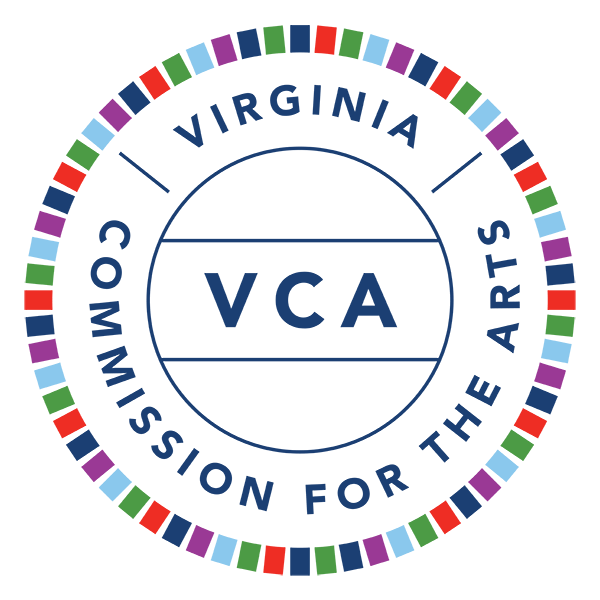Purpose
To expand access to high-quality artist-led residencies throughout Virginia.
Description
Arts in Practice Grants help ensure that Virginians can experience enriching educational programming through dynamic artist-led residencies. This grant program is designed to reimburse eligible organizations for up to $2,000 that partner with artists on the VCA Teaching Artist Roster. Arts in Practice activities must be facilitated in-person but may vary in duration and format. These activities are designed to support a diverse range of learning environments for participants of all ages, and/or professional development opportunities for educators.
Eligible Applicants
- Virginia federally tax-exempt schools (public, public charter, private, alternative, special education schools, homeschools, career and technical centers, colleges, and universities)
- Virginia nonprofit 501(c)(3) organizations
- Virginia units of local and tribal governments (including libraries, departments of parks and recreation, correctional facilities, etc.)
NOTE
- Organizations receiving GOS grants may not apply for Arts in Practice Grants.
- Eligible applicants may apply for no more than two Arts in Practice Grants within a fiscal year.
Eligibility Requirements
- Meets the basic eligibility requirements as listed on page 9 of the FY26 Guidelines for Funding
- All programming must take place in ADA-compliant facilities in Virginia
- Must not be under current debarment or suspension from federal funding
- Must have no past due Final Reports to the VCA at the time of application
Eligible Activities
- In-person participatory residencies led by VCA Teaching Artists, taking place in Virginia between July 1, 2025 – June 15, 2026.
- Activities may include workshops, community arts projects, or professional development for arts educators, and must include a participatory component.
- Programs must be open to the public, and the applicant must provide community-wide publicity. Elementary and secondary schools, senior living facilities, correctional facilities, and hospitals are exempt from this requirement.
NOTE
- Arts in Practice Grants are not intended to support concerts, assemblies, or field trips.
- Assessment is required to measure residency effectiveness in meeting program goals.
Application Deadline
Arts in Practice is a rolling grant program that opens July 1, 2025. Applications are reviewed on a first-come, first-served basis by Commission staff until April 1, 2026. Applicants must apply at least two weeks prior to the activity.
Amount of Assistance
Up to $2,000 for residency or workshop fees with VCA Teaching Artist’s, subject to the overall funding limit allocated for each VCA Teaching Artist. Arts in Practice awards are made to the partnering organization applying for the grant (not to the VCA Teaching Artist), who is responsible for compensating the VCA Teaching Artist in full.
NOTE: Arts in Practice grants support contracted professional fees, travel expenses, and supplies related to the proposed grant activity. Project expenses are negotiated between the organization and the VCA Teaching Artist. Professional fees must equal or exceed 50 percent of total project expenses.
Cash Match
Grant awards to organizations must include a 15% cash match. For example, if an organization requests $1,000 from VCA, it must have at least $150 in cash income from another source (other than state or federal funds) towards the expenses of that same project. Sources of matching funds may include revenue from the project activities such as ticket sales, contributions from foundations or corporations, government support from federal or local sources, or cash from the organization’s own accounts.
Required Attachments
The following forms are provided by the Commission via upload in the online grant application:
- Project Budget Form
- Signed Certification of Assurances
- Virginia W-9 Form
All applicants must generate and upload the following documents:
- Signed contract between the Teaching Artist and Facilitator
- IRS 501(c)(3) Determination Letter
Application/Review/Payment Process
- Applicants may reach out to VCA Teaching Artists on the online Teaching Artist Roster, and secure bookings for residencies and workshops taking place July 1, 2025 through June 15, 2026.
- Applicants must upload signed contracts with their selected VCA Teaching Artist in the application. All negotiations regarding type and schedule of activities, fees, technical needs, and promotional efforts are the responsibility of each VCA Teaching Artist and the applicant, and the resulting arrangements must be included in the contract. Each contract must contain the VCA contingency clause: “This contract is contingent upon receipt of an Arts in Practice Grant award in the amount of $____ from the Virginia Commission for the Arts.”
- Applicants must complete and submit the online application to the Commission at least two weeks before the proposed residency/workshop.
- The Commission staff reviews each application for completeness and eligibility. Incomplete or ineligible applications will not be reviewed, will be returned to the applicant with an explanation, and will not be funded.
- Arts in Practice Grants are not automatic and confirmation/grant award letters are generally emailed two weeks after receipt of a completed and approved application.
- Payment will be made in full following award approval, typically within 30-45 days.
- Applicants must submit Final Reports within 30 days after the completion of the activities. Final Report forms can be found on the applicant’s dashboard. Failure to submit the Final Report will affect future funding.
- If any applicant receiving subsidy for an Arts in Practice grant has actual income in excess of expenses, the applicant must use these additional funds for other arts activities, and the Commission must approve the use of any of these excess funds up to the amount of the grant.

